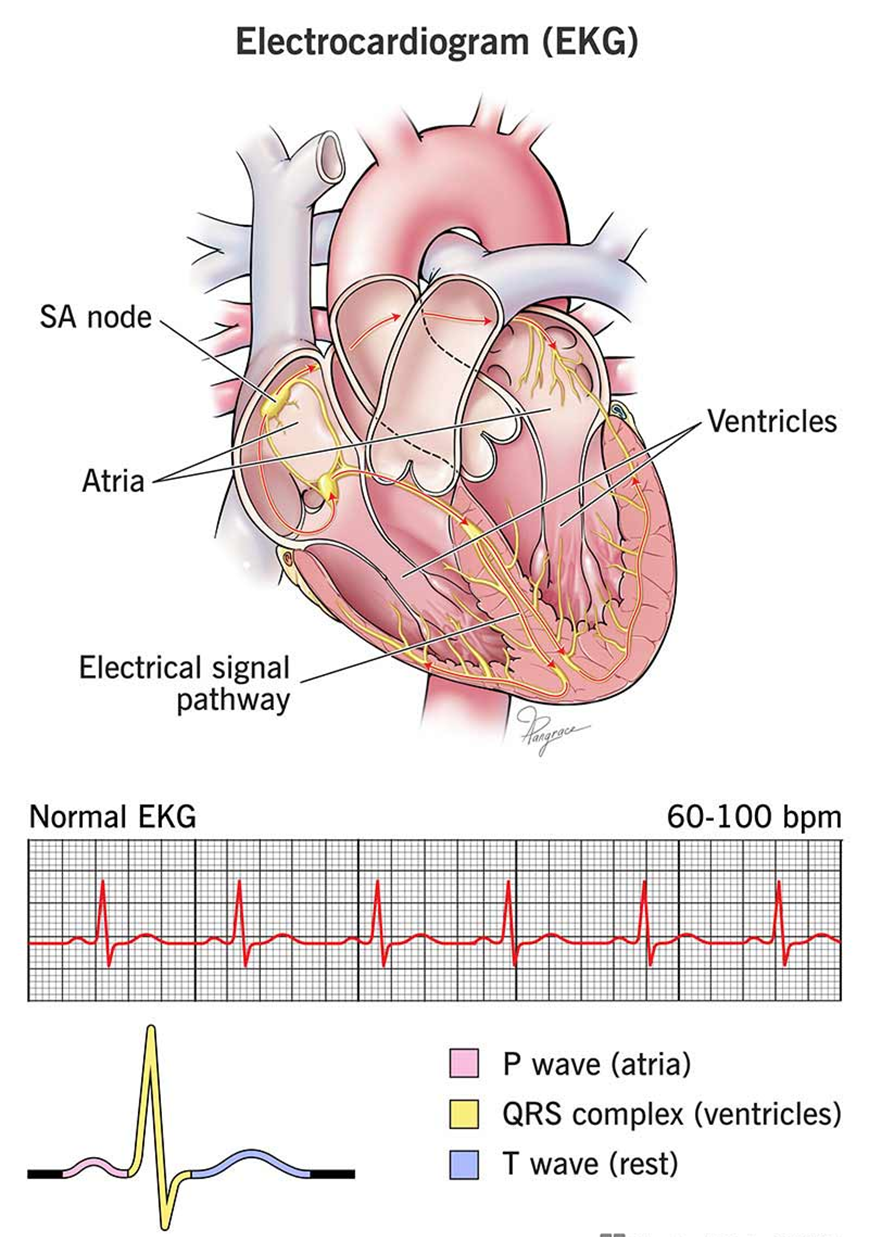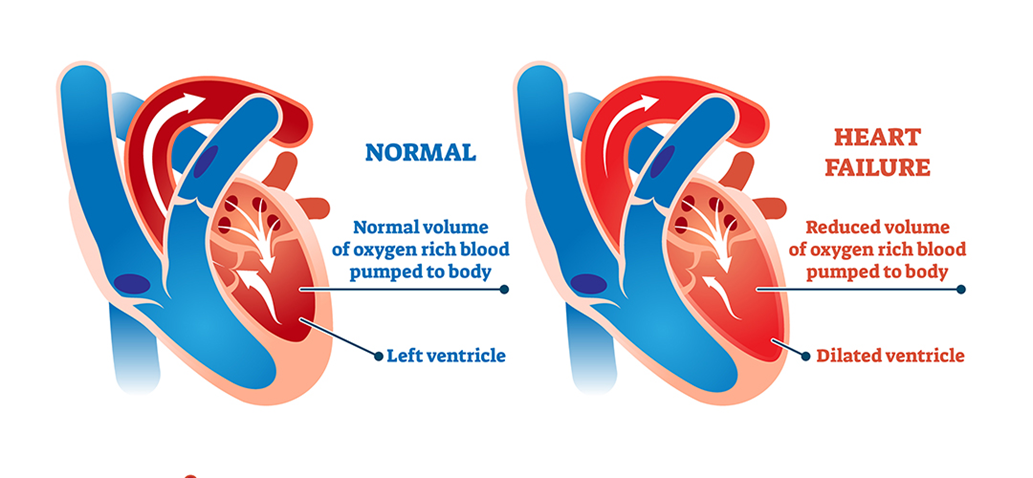Which of the following diagnostic tests is commonly used to assess heart failure?
Pulmonary function test
Electrocardiogram (ECG)
Urinalysis
Complete blood count (CBC)
The Correct Answer is B
Choice A Reason:
Pulmonary function tests are used to assess lung function and diagnose respiratory conditions such as asthma, chronic obstructive pulmonary disease (COPD), and other lung disorders. While heart failure can affect lung function, pulmonary function tests are not specifically used to diagnose heart failure.
Choice B Reason:
An electrocardiogram (ECG) is a common diagnostic test used to assess heart failure. It records the electrical activity of the heart and can detect abnormalities in heart rhythm, heart size, and the presence of ischemia or infarction. ECGs are crucial in diagnosing and monitoring heart conditions, including heart failure.
Choice C Reason:
Urinalysis is a test that examines the content of urine and is used to diagnose and monitor kidney function, urinary tract infections, and other metabolic conditions. It is not specifically used to diagnose heart failure, although kidney function can be affected by heart failure.
Choice D Reason:
A complete blood count (CBC) measures the levels of different blood cells, including red blood cells, white blood cells, and platelets. While a CBC can provide valuable information about a patient's overall health and detect conditions like anemia or infection, it is not specifically used to diagnose heart failure.

Nursing Test Bank
Naxlex Comprehensive Predictor Exams
Related Questions
Correct Answer is C
Explanation
Choice A: Palpitations
Palpitations, or the sensation of a rapid or irregular heartbeat, can occur in various heart conditions, including left heart failure. However, they are not the most common or specific symptom of left heart failure. Palpitations can be caused by arrhythmias, anxiety, or other cardiac issues. In the context of left heart failure, the heart's inability to pump blood effectively leads to fluid buildup in the lungs, causing shortness of breath, which is a more direct and common manifestation.
Choice B: Peripheral edema
Peripheral edema, or swelling in the legs and ankles, is more commonly associated with right-sided heart failure. In right-sided heart failure, the heart's right ventricle fails to pump blood efficiently, leading to fluid accumulation in the body's extremities. While peripheral edema can occur in left heart failure, it is not as common as shortness of breath. Left heart failure primarily affects the lungs, leading to pulmonary congestion and shortness of breath.
Choice C: Shortness of breath
Shortness of breath, or dyspnea, is the hallmark symptom of left heart failure. When the left side of the heart fails to pump blood effectively, blood backs up into the pulmonary veins, causing fluid to leak into the lungs. This results in pulmonary congestion and difficulty breathing. Patients with left heart failure often experience shortness of breath during physical activity, while lying down (orthopnea), or waking up at night (paroxysmal nocturnal dyspnea). This symptom is a direct consequence of the heart's reduced ability to manage blood flow and is a key indicator of left heart failure.
Choice D: Chest pain
Chest pain can be a symptom of various cardiac conditions, including coronary artery disease, myocardial infarction (heart attack), and angina. While chest pain can occur in heart failure, it is not the most common manifestation of left heart failure. The primary issue in left heart failure is the heart's inability to pump blood effectively, leading to fluid buildup in the lungs and shortness of breath. Chest pain is more typically associated with ischemic heart conditions rather than heart failure itself.

Correct Answer is ["30"]
Explanation
Step-by-Step Calculation:
Step 1: Convert 2 gm to mg.
2 gm × 1000 = 2000 mg
Step 2: Determine the concentration of Lidocaine in mg/mL.
2000 mg ÷ 500 mL = 4 mg/mL
Step 3: Calculate the infusion rate in mL/min.
2 mg/min ÷ 4 mg/mL = 0.5 mL/min
Step 4: Convert the infusion rate to mL/hr.
0.5 mL/min × 60 min/hr = 30 mL/hr
Result: The Lidocaine drip should be infused at 30 mL/hr.
Whether you are a student looking to ace your exams or a practicing nurse seeking to enhance your expertise , our nursing education contents will empower you with the confidence and competence to make a difference in the lives of patients and become a respected leader in the healthcare field.
Visit Naxlex, invest in your future and unlock endless possibilities with our unparalleled nursing education contents today
Report Wrong Answer on the Current Question
Do you disagree with the answer? If yes, what is your expected answer? Explain.
Kindly be descriptive with the issue you are facing.
